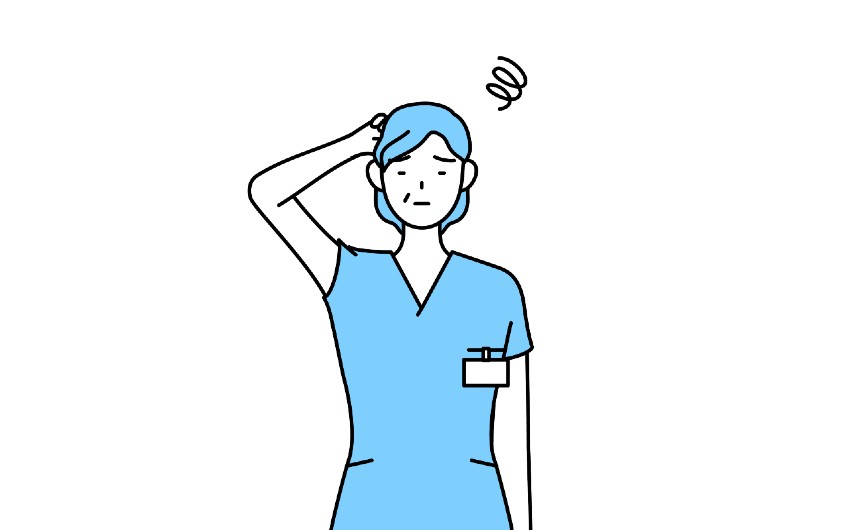Grievance
Introduction
If you have a problem or complaint about work, it may be difficult to know what steps to take.
For some types of problem, such as changes to working practices or relationship problems with your manager, you'll have a greater chance of resolving it by dealing with it quickly and informally.
Try an informal approach first
Use our problems at work checklist to help you resolve the issue informally. A formal grievance may be the right approach if the situation is serious, but you should always try to resolve the issue informally first.
Raising the issue formally: submitting a grievance
Examples of issues that may lead to a formal grievance include:
- terms & conditions of employment
- health & safety
- work relations
- bullying & harassment
- new working practices
- working environment, or
- organisational change.
Please note this list is not exhaustive.
Other processes
Please also consider whether your issue is better dealt with under another procedure — such as incident reporting or raising concerns (about safety issues) or making a bullying complaint.
(Please note: the below relates to England, Wales and Scotland only. If you work in Northern Ireland, please see the nidirect advice on this topic.)
The grievance procedure enables you to raise concerns with management about workplace problems. Your employer should have a grievance policy/procedure which you should read to familiarise yourself with the process.
To ensure a fair process is followed, it should have at least three key stages:
- the option to resolve the issue informally (use our checklist to help with this)
- the first formal stage, and
- the opportunity to appeal the decision
There are strict deadlines to lodge workplace appeals and subsequent employment tribunal claims, so please contact us for advice as soon as possible if you wish to challenge your employer's decision.
In addition to your employer's policy, the ACAS Code of Practice sets out standards of fairness and reasonable behaviour that employers and employees are expected to follow in most situations when dealing with a dispute in the workplace. But, remember: it is always advisable to try to resolve disputes informally before lodging a formal grievance.
When to contact us
Many issues in work can be resolved amicably by talking about it to a colleague, or your manager and following the local policies.
It is important to contact us for advice and support if:
- the incident is of a highly serious nature (for example, the police are involved)
- you are considering making a formal complaint or taking legal action
- you are considering resigning.
The general process
The table below explains a typical grievance process, but you should also check your employer’s policy for the process that applies where you work.
Step one: try to resolve matters informally
Take a look at our problems at work checklist for advice on how to raise the issue informally. Your employer’s policy should outline the informal methods of dispute resolution available to you, once you have raised the issue. One informal method of resolving a problem is mediation, where an impartial third party helps those in dispute to try to reach an agreement. Mediation has the advantage of enabling both parties to express how they feel about the issue and explore mutually agreed terms to make up the agreement. Mediation can be used at any stage during the process. ACAS have further guidance on this. |
Step two: taking your complaint further
If the issue cannot be resolved informally, consider the following:
Use our checklist to start drafting your grievance letter (see step 3: escalate) and contact us as soon as possible. |
Step three: inform your employer
You will need to follow your local policy and inform your employer of the nature of your grievance in writing. You should include:
|
Step four: the hearing
Once your grievance has been lodged, your employer should carry out investigations to establish the facts of the case and arrange a formal meeting as soon as possible. This is known as a grievance hearing. You should be given the opportunity to explain your views and make suggestions for how things could be resolved. Your employer may need time to consider your evidence, take advice from other parties or investigate further. If this is the case, your employer should agree timescales and arrange a follow up meeting. |
Step five: action
Following the investigation and hearing your employer should communicate their decision to you, in writing, as soon as possible. |
Step six: appeal
If you decide to appeal the decision, please check your local policy. This should clarify the appeal process and the time limits within which you need to appeal. You would usually be expected to outline the reasons for appeal, in writing, and submit this to your employer within a specified time frame. |
If you're unhappy with a decision taken by your employer, an employment tribunal claim may be an option. It must be a decision that an employment tribunal has jurisdiction to deal with.
Before pursuing an employment tribunal claim, you are legally required to take part in early conciliation, which is a service provided by ACAS or the Labour Relations Agency if you are in Northern Ireland.
See our employment tribunals and the courts guidance for information on early conciliation and the how we can help. If you are considering early conciliation, please contact us before taking any further action.
Early conciliation has an impact on the calculation of the deadline for presenting an employment tribunal claim and it is your responsibility to be certain of the deadline for presenting your potential claim.
'Collective' grievances occur when several staff are affected by the same problem.
If two or more employees raise the same grievance, then the provisions of the ACAS Code do not apply. Your local policy should determine the process for the collective dispute.
If you are considering a collective dispute alongside your colleagues, please contact us for further advice.
You may be called as a witness at a grievance hearing and/or be asked to produce a written statement outlining your involvement in the matter in question.
If you've been asked to attend a hearing as a witness or provide a written statement please see our information for witnesses.
If you raise a grievance during a disciplinary process, the procedure can be temporarily suspended to deal with your grievance. If the grievance and disciplinary case are related it may be appropriate to deal with both issues at the same time.
You should not be victimised for lodging a grievance. If your grievance does not resolve your concerns, you may need to decide whether to take further action. Please contact us to discuss your concerns.
If a grievance has been lodged against you as a manager, you should read our advice about investigations then seek advice and support from your HR department.
If at any point you feel there are other contributing factors to the grievance such as discrimination, please contact us.
When your employer discusses the allegations with you, be ready and able to justify any managerial decisions or actions you took in line with your employer's policies.
At this initial stage, you are not being disciplined. However, if disciplinary action is taken against you at a later stage, the RCN will represent you in most cases and you should contact us to discuss this.
What software will I need to use?
In advance of the hearing confirm what software will be needed. If you do not have access to this, let your employer or representative know as soon as possible. You should also confirm whether you will be on video or whether the hearing will be audio only.
If you are on video, we suggest dressing as if the hearing was going ahead in person. You should be comfortable but look professional. Hearings are usually held in formal environments and there is an expectation that your clothing will be smart.
When should I mute my microphone when giving evidence?
If you are speaking, you will need to ensure your microphone is on and close enough to you to allow all the attendees to hear you clearly. When you are not speaking, we suggest muting your microphone to limit any background noise.
What if I lose connection?
Do not worry or panic, anyone involved in virtual hearings will know that technology is not always reliable. Prior to the start of the meeting, it is advisable to exchange telephone numbers with your representative or someone else at the hearing. This means you can easily get back in touch if the connection is lost to see whether anything can be done, such as taking a short adjournment to allow you time to reconnect.
Can I record the hearing, take photographs or use my mobile phone during the hearing?
Much like an in-person hearing, you should not use your mobile phone, which should be on silent while the hearing is ongoing. Unless it is agreed by all attendees, you should not record any part of the hearing or take photographs. Notes, minutes and/or a transcript are usually taken to ensure that there is an accurate record of the hearing.
ACAS resources on raising a grievance at work
ACAS Code of Practice on Discipline and Grievance
nidirect: grievance procedures
The Labour Relations Agency (LRA) Code of Practice on Disciplinary and Grievance procedures sets out principles that should be followed in Northern Ireland.
All Wales NHS Respect and Resolution policy and accompanying FAQs
If you work outside of the NHS, please see our Employment Standards for Independent Health and Social Care Sectors. These set out what we expect employers in these settings to deliver for the nursing workforce.

Counselling
Get support with the emotional impact of problems at work through our dedicated counselling service for members.
Statements, investigations and discipline
Bullying, harassment and stress
Find out how to tackle bullying at work, or deal with accusations of bullying.
Working time, health and safety
Find out more about health and safety at work.
Page last updated - 05/12/2025






